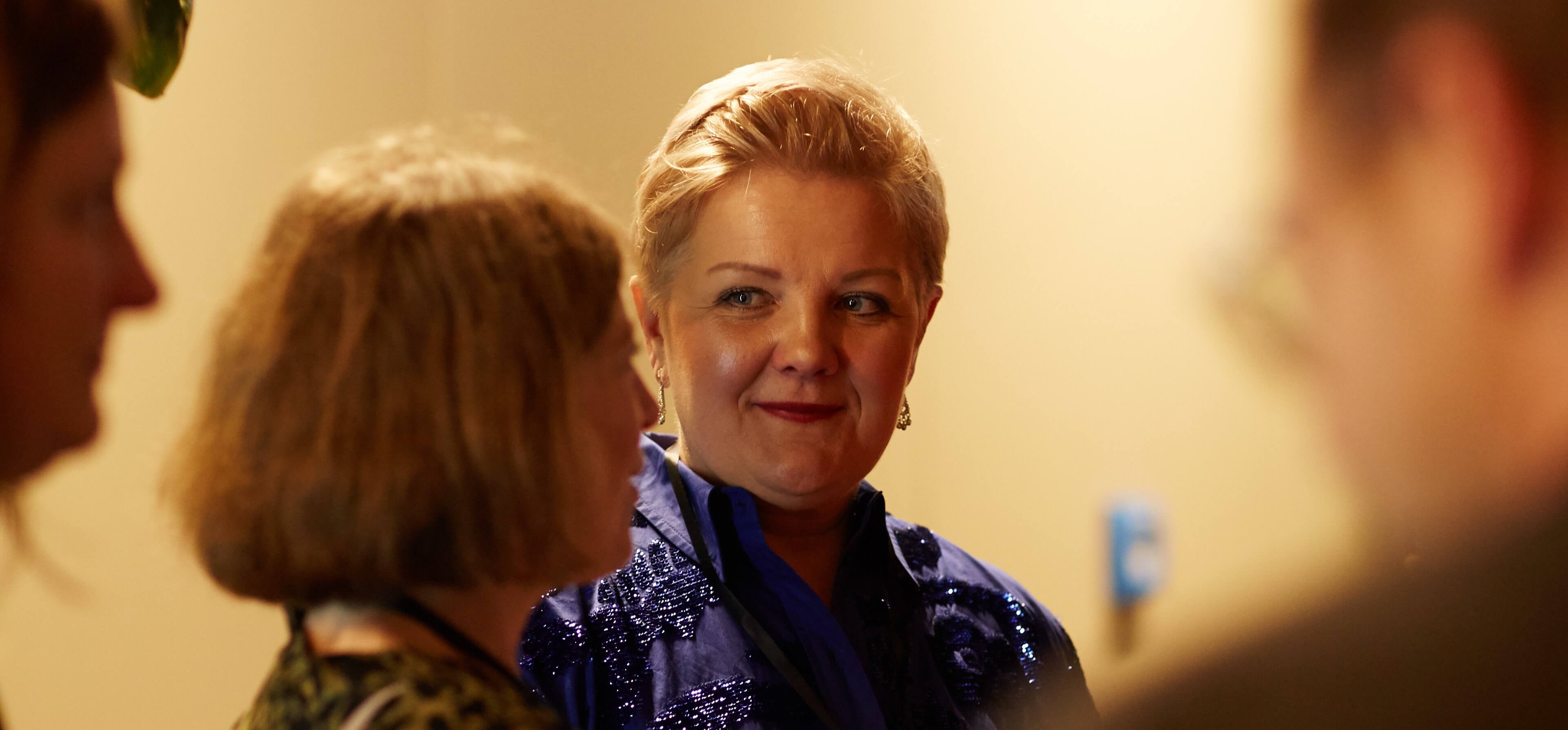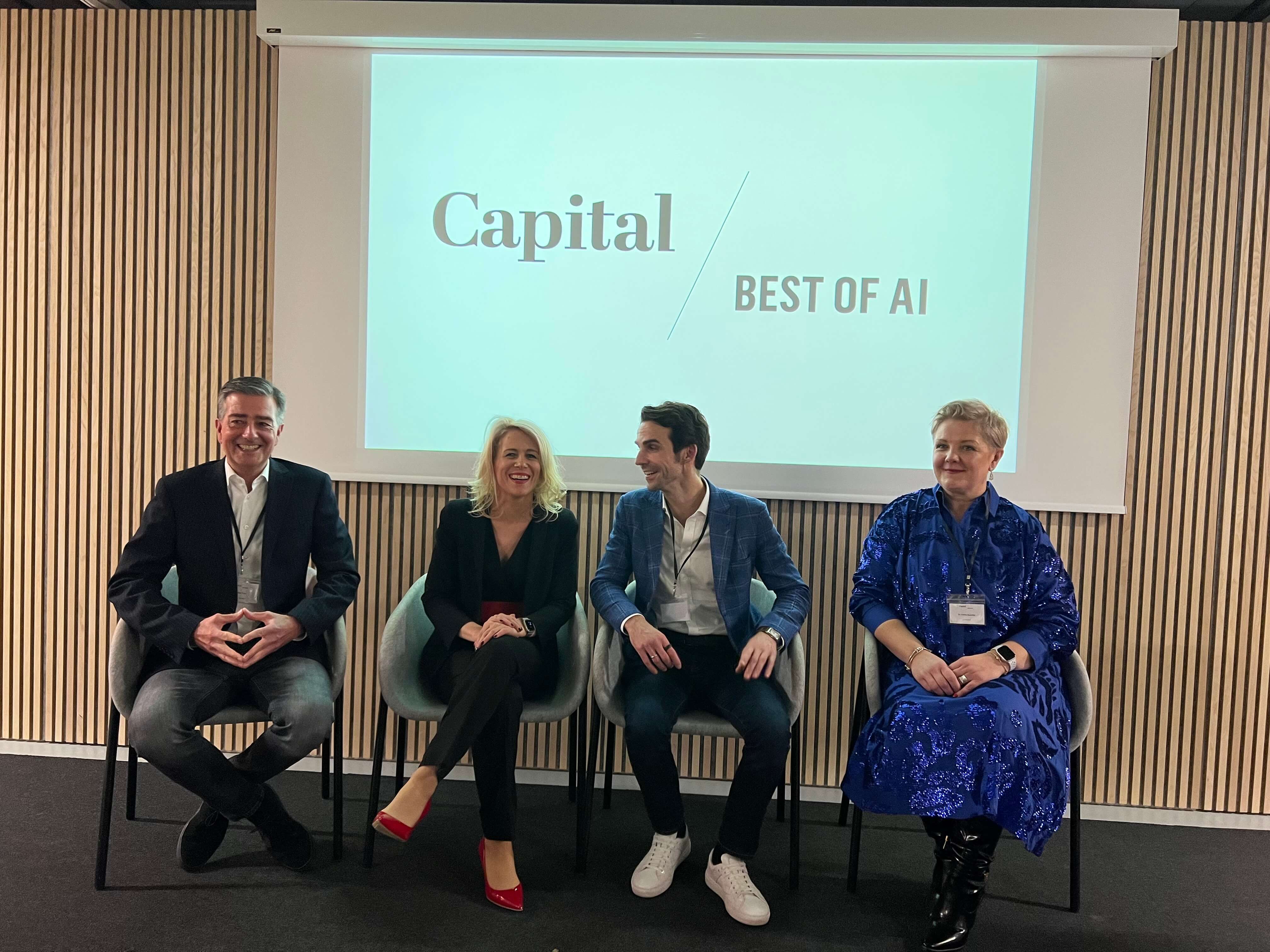What defines good leadership in the field of artificial intelligence today? In this interview with Markus Trost, Dr. Corina Apachite explains why it’s not about titles or trends — but about conviction, clarity, and responsibility.
As Head of Artificial Intelligence at Continental Automotive, Dr. Corina Apachite leads a global team that is rethinking the future of mobility — with solutions that are scalable, responsible, and purpose-driven. In this interview with Markus Trost, she talks about her path into leadership, moments of doubt, what truly empowers people — and why modern leadership is more about trust, collaboration, and meaning than about hierarchies or technology alone.

Natural Leadership — Being Chosen Because You Care
Your career in the field of Artificial Intelligence is impressive. What was the pivotal moment that led you to pursue this path as a leader? And was there ever a moment when you seriously questioned that decision?
My journey into AI leadership wasn’t a calculated career move, but a gradual realization that this technology needs people who combine technical depth with a strong sense of responsibility. I believe in this kind of natural leadership — being chosen because you care, because others trust you — rather than having a fixation on becoming a leader.
And yes, there have been moments of doubt. AI is at times overhyped and not as well understood as one would hope. Sometimes, the expectations placed on the technology felt disconnected from what was actually possible. But I never regretted the path. Quite the opposite: it gives me purpose, especially when I can shape not just the technology, but also the way people think, collaborate, and grow.
My journey into AI leadership wasn’t a calculated career move, but a gradual realization that this technology needs people who combine technical depth with a strong sense of responsibility.
Leadership is always linked to transformation and growth. From your perspective, how would you describe the company as an environment for this kind of development? How did the organization succeed in making AI both a strategic priority and a commercial success?
Continental has a long tradition of transformation. Two things that may seem like a contradiction — stability and reinvention — are part of our DNA. Over the years, our competencies and product portfolio have continuously evolved: from hardware to software, and now to AI. Continental had integrated AI into its camera systems by 2012, using neural networks for object detection and sensor fusion to enhance environmental perception and driver assistance. A department for AI exists since 2016.
What makes AI different is its reach. It doesn’t just touch our products — it transforms how we work, how we learn, and how we think across the entire company.
We made AI a strategic priority by building a global AI organization, with both central and embedded roles, and by embedding AI into development, production, and operations. We actively collaborate with academia, startups, and local ecosystems.
The commercial success followed once we moved beyond isolated proofs of concept and focused on scalable, value-driven use cases — like optimizing manufacturing, accelerating engineering, and building entirely new business models. A great example is our partnership with Aurora for autonomous trucking.
You have been recognized by Capital as one of the top AI leaders in the DACH region. In your view, what makes leadership in Data & AI unique — and which aspect of it are you personally most passionate about?
AI leadership is still an emerging discipline — and one that goes far beyond tech expertise. It’s about combining vision with execution, technology with responsibility. I truly believe: it’s not about making machines more human — it’s about freeing humans from working like machines.
It’s not about making machines more human — it’s about freeing humans from working like machines.
As a leader in such a fast-evolving field, how do you engage and inspire both top management and your team? What strategic vision have you aligned them with?
I believe in clarity and courage. With top management, I speak the language of impact and competitiveness: AI is not a trend — it’s a prerequisite for future success.
With my teams, I focus on purpose. Our vision is to become an AI-empowered company — making AI fast, scalable, responsible, and value-driven. It’s not just about delivering algorithms. It’s about creating solutions that empower our colleagues and serve our customers — in meaningful, tangible ways.
Scaling with Purpose: How Responsible Leadership Drives Real AI Transformation
Many companies struggle with implementing and scaling AI use cases. How has your organization tackled this challenge — and could you share a concrete example of a successful case?
Scaling AI takes more than great models — it requires clear priorities, strong cross-functional collaboration, and operational readiness. At Continental, we built a shared AI portfolio across business areas, aligned it closely with engineering and operations, and invested in communities, upskilling, and governance. One of our key learnings: scaling only works with interdisciplinary teams — and in some cases, we started forming them too late.
A breakthrough use case is our AI-based Requirements Engineering Tool, developed in collaboration with Microsoft and NTT DATA on Azure AI Services. It automates the analysis of highly complex customer specifications — often containing up to 30,000 individual requirements — and reduces manual effort by up to 80%.
This innovation accelerates our development cycles and enables engineers to focus on higher-value tasks. It’s not about replacing people — it’s about empowering them. The solution is now being scaled across business units and was recently honored with the Microsoft Intelligent Manufacturing Award (MIMA) as “Overall Winner” — a powerful example of how AI, applied with deep industry knowledge, drives real transformation.
You’ve been working at the forefront of AI for several years. How do you think this technology will reshape leadership itself — and how do you expect your own leadership style to evolve over the next three years?
Leadership has evolved through many eras — but certain patterns remained: power through knowledge, influence through control, and distance as a sign of authority.
AI is shifting that. As Aristotle Onassis once said, “To succeed in business, you must know something nobody else knows.” But today, knowledge is no longer exclusive — it’s accessible. What will define leadership is the ability to connect, enable, and create meaning.
For me, leadership isn’t a cookbook — it’s more like a journal: evolving, contextual, and deeply human.
For me, leadership isn’t a cookbook — it’s more like a journal: evolving, contextual, and deeply human. Over the next three years, I want to become even more of a multiplier: empowering others to lead with AI, especially in fields beyond technology.
I want to stay close to my teams, stakeholders, and customers — and help build machines that create free and creative spaces, freeing people from tasks that limit them and enabling them to thrive.
Above all, I want to remain grounded — ensuring that speed never comes at the cost of thoughtfulness and impact.

Celebrating Progress: What the Best of AI Award Means for the Team
As one of the first recipients of the “Best of AI” award, have you noticed any lasting impact from this recognition — either professionally or personally?
Absolutely. When I received the award, my first thought was of all the people I’ve had the privilege to work with over the years. This recognition belongs just as much to my team — and to Continental as a whole.
Not everyone is aware of how far we've come as a company in combining deep automotive expertise with cutting-edge AI. The award helped raise that visibility — not only within Continental, but also across the German AI ecosystem. It sent a strong signal: we’re not just experimenting with AI — we’re shaping the future of mobility with it.
We’re not just experimenting with AI — we’re shaping the future of mobility with it.
And yes, we should live by this: the success we don’t celebrate is the success we won’t sustain. This was my own motivation to bring me in.
For my friends and family, the moment was just as special. Even though I might have already been seen as “the best of...” in their eyes, the award added a little sparkle.
We sincerely thank Dr. Corina Apachite for sharing her insights and perspectives in such an open and inspiring way.
Photo credit: Capital / Alena Schmick



